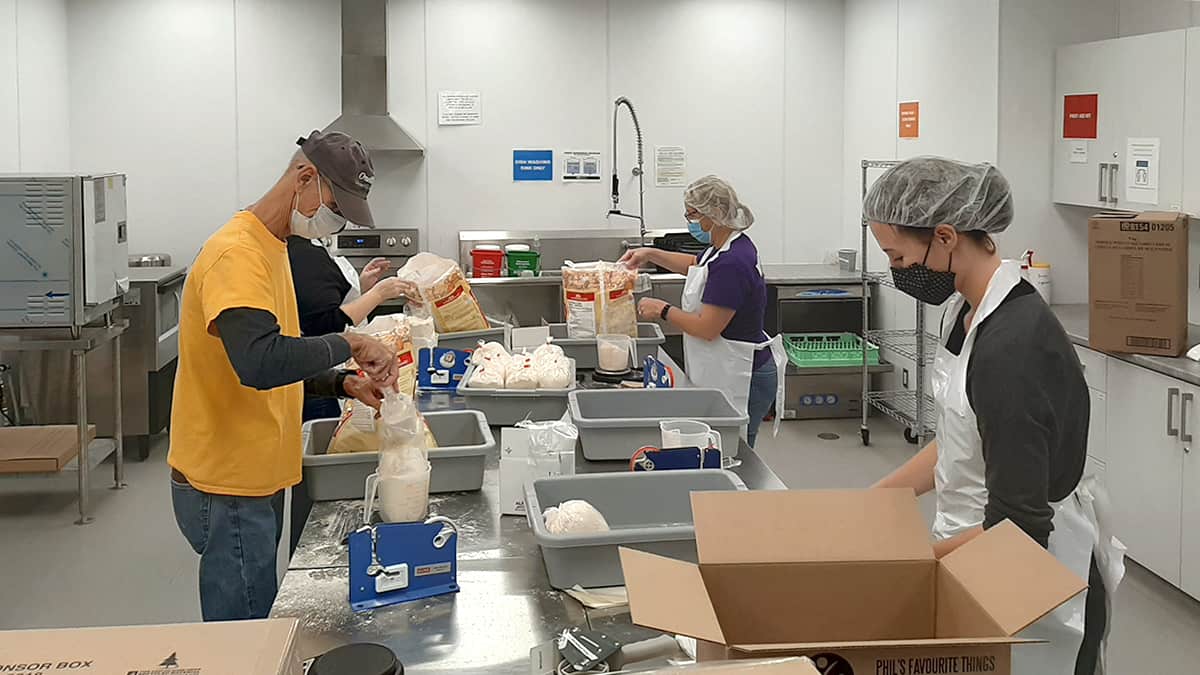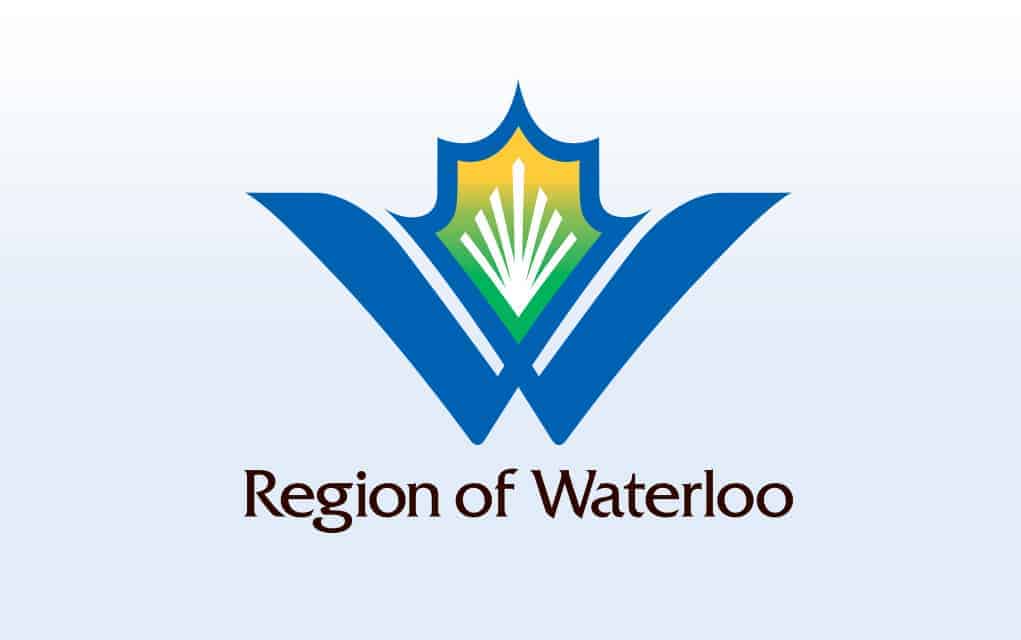Demand for food bank assistance in the region increased by 26 per cent during the first year of the pandemic. As such, the Waterloo Region Food Bank distributed more than 4.6 million pounds of fresh, frozen and non-perishable food.
“We were able to shift some of our food drives to a virtual food drive and use those fundraising dollars through a virtual food drive to also purchase food and fill in the gaps where we didn’t have donated food options,” said Wendi Campbell, the organization’s CEO.
All of that extra work came with fewer volunteers as the organization dealt the pandemic, lockdowns , restrictions on the size of gatherings and physical distancing requirements, among other hurdles.
“We were able to distribute over 4.6 million pounds of food out to the programs in the network. And we did that with the support of our staff and 213 volunteers who contributed more than 13,000 hours of support to us doing sorting and packing and delivering food to the community. That’s a significant reduction in what our regular volunteer base would be – we would probably have over 2,000 volunteers in the building but also out in the community, coordinating food drives and running special events so pretty big reduction in support,” said Campbell.
“Where we did see the significant increase was the support that we provided to our shelter, residential, supportive housing and homeless outreach programs – almost 31,000 different individuals received some kind of emergency support in the last year, which is on par to the previous year. So, the number of people didn’t increase dramatically throughout the region but the volume of work, and the volume of food definitely increased,” she explained.
The new report shows 30,960 people received food support between March 2020 and March 2021, with 749,794 meals served at 41 shelter, residential, community meal and outreach programs. As well, 26 community programs such as those offered by Woolwich Community Services received 34,895 food hampers between them.
Lisa Martin, the food bank coordinator at Woolwich Community Services, has seen an increase in frequency of visits from the people they serve, as well as the need to add new food service programs.
“We do have new people coming in. We’ve had to adapt to make it user friendly for everybody and safe,” said Martin.
“We do have local farmers that definitely donate, but we also have a very giving community that donates as well through the grocery stores, through churches and organizations. That also helps us a lot,” she added.
“We also run fresh food programs on both Mondays and Friday. Fridays we also have Fresh Food Friday, and low-income families can come and help themselves to fresh fruits and vegetables, dairy, a few different items in that category as well. That is donated from the food bank on Friday. We have an extremely giving community here, so we have a volunteer that picks up Mondays and Fridays from the grocery stores, just to keep up with the donations there,” noted Martin about their fresh food programs.
“We run a garden-fresh program on Mondays, which we always run in the summer, but we’ve increased it a little bit more.”
Martin said WCS is grateful for all the community support and donations over the last year, noting that they are looking forward to welcoming volunteers back any day.
“Right now our focus is recovery and having a better understanding of what the economic impact is going to be in this post-COVID reality – is there going to continue to be job losses, are people going to be able to go back to work at the same levels of income? As a network we did such an amazing job of having the foresight to be prepared when the state of emergency was declared – we were ready. We want to also be ready to address whatever emerging needs the community might have as we come out of this; recovery is going to look very different for everybody, and we want to make sure that food and the lack of access to food is not a barrier for anybody trying to move on and move through this crisis,” said Campbell.









